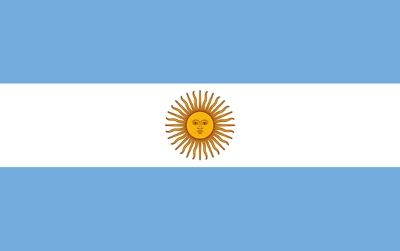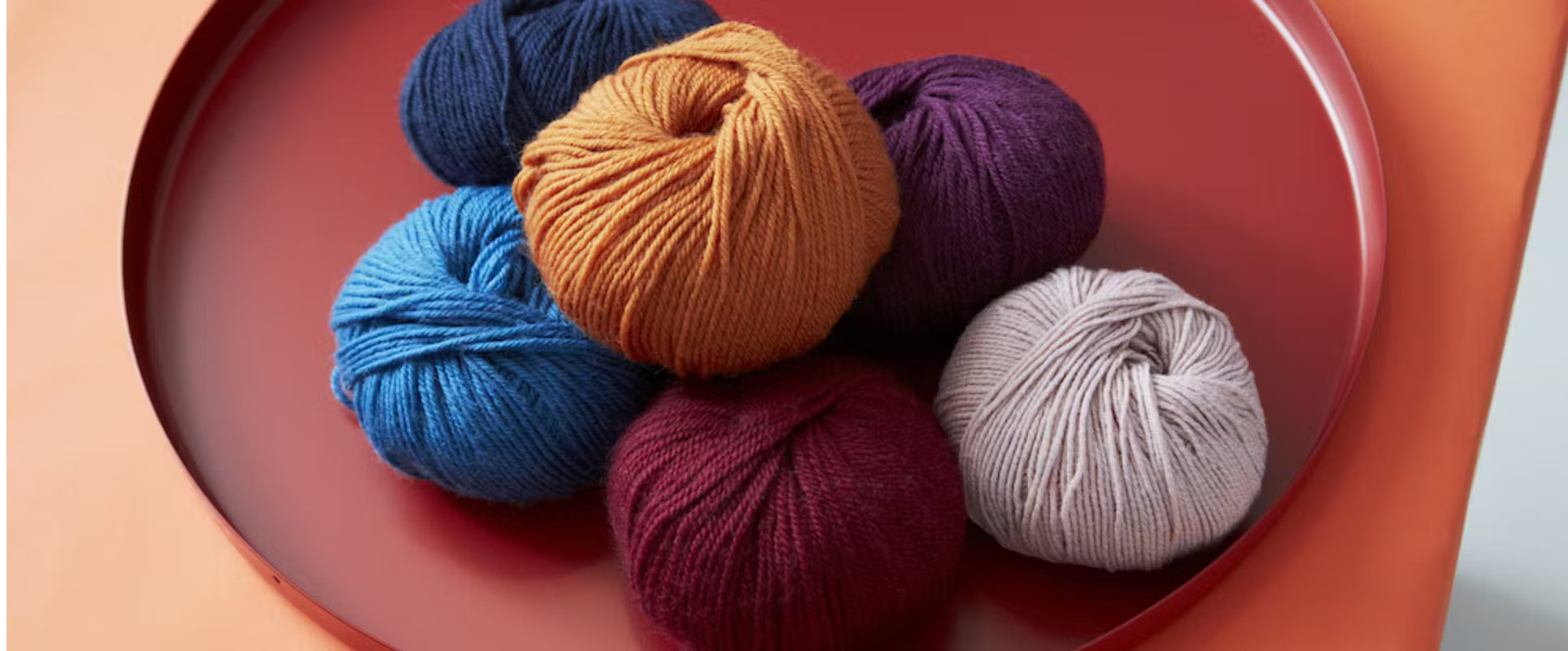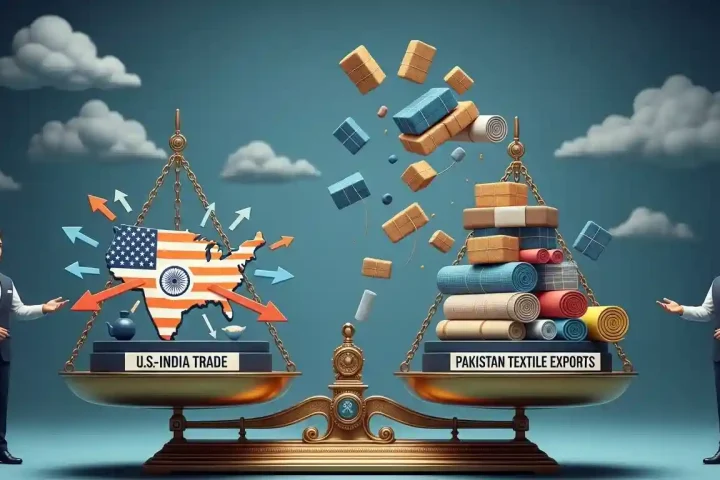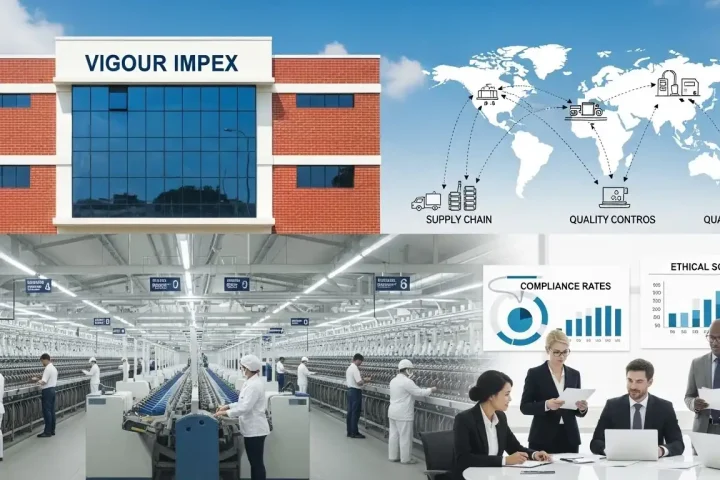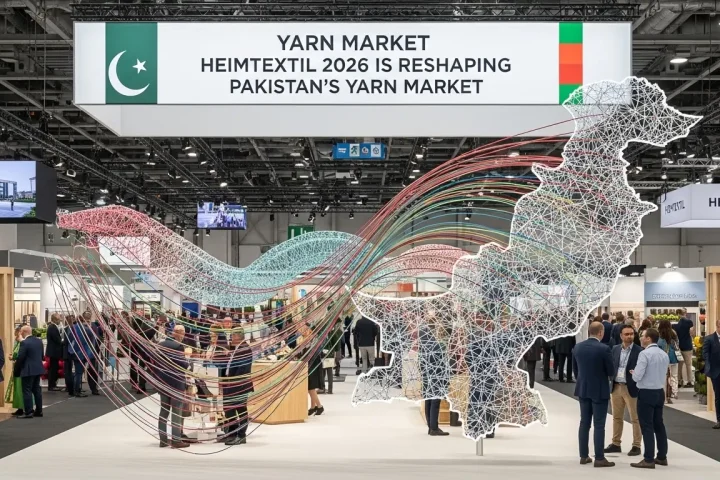If you’re in the textile business, you’ve probably heard that Pakistan is one of the world’s top yarn producers. But knowing that and actually sourcing quality yarn at competitive prices are two different things.
I’ve worked with countless buyers who’ve struggled with finding reliable suppliers, understanding fair pricing, and ensuring consistent quality. This guide will walk you through everything you need to know about sourcing yarn from Pakistan, from prices to quality checks to current market trends.
Let me share what actually works when buying yarn from Pakistan, not just the theory.
Industry News and Updates on Pakistan’s Yarn Market
Staying updated with the latest industry news and updates is crucial for effective yarn sourcing from Pakistan. In 2025, the Pakistani yarn market has experienced several notable developments impacting buyers and suppliers:
- Record Cotton Imports Impacting Yarn Prices: Due to lower-than-expected local cotton production, Pakistan has significantly increased cotton and yarn imports reaching over $4.24 billion this year, influencing local yarn availability and driving price adjustments [Pakistan Today report].
- Technological Advancements in Spinning Mills: Major spinning mills in Pakistan are adopting new automated technologies to improve yarn quality and production efficiency, enabling competitive pricing and consistent output.
- Government Policy Changes: Recent changes in tax policies and subsidies related to raw cotton and textile exports have created some price volatility. Industry insiders advise buyers to watch for announcements from Pakistan’s Cotton Ginning and Export Company for timely updates.
- Growing Focus on Sustainable Yarn Production: With global demand for eco-friendly materials on the rise, Pakistani manufacturers are investing in organic cotton yarn production and recycled polyester blends to meet export market needs.
- Expansion of Online Trading Platforms: Digital marketplaces like Sutarmandi continue to expand their reach, offering real-time prices and direct access to a broader pool of suppliers, improving transparency and sourcing efficiency.
Keeping abreast of these industry updates through trusted news sources and market reports ensures buyers make informed decisions, optimize costs, and select the right yarn counterparts in Pakistan. Follow our latest industry news for textile sector developments

Why Source Yarn from Pakistan?
Before we dive into the how-to, let’s talk about why Pakistan has become a global hub for yarn manufacturing.
Pakistan ranks as the 4th largest cotton producer worldwide and the 3rd largest consumer of cotton. This isn’t just about numbers it means the entire infrastructure, from raw materials to skilledlabour,, is already in place.
Here’s what makes Pakistani yarn stand out:
- Cost-effectiveness: Lower production costs compared to Western markets without compromising quality
- Variety: Everything from cotton to polyester, blended yarns to specialty fibers
- Quality standards: Many manufacturers follow international certifications
- Export experience: Decades of supplying to major global brands
- Capacity: Both small orders and bulk quantities are manageable
The textile industry accounts for about 60% of Pakistan’s exports, meaning the country has serious expertise and competitive pricing due to economies of scale. According to Pakistan’s cotton production rankings, the country ranks 4th globally
Understanding Yarn Types Available in Pakistan
When you’re buying yarn in Pakistan, knowing exactly what you need saves time and money. According to Pakistan’s cotton production rankings, the country ranks 4th globally.Let me break down the main categories you’ll encounter.
Cotton Yarn
Cotton yarn dominates Pakistan’s textile production. The country’s favourable climate produces high-quality cotton, making it the natural choice for local yarn manufacturers.
Available types:
- Carded cotton yarn (coarser, more economical)
- Combed cotton yarn (finer, softer, premium quality)
- Organic cotton yarn (growing segment for eco-conscious buyers)
- Slub yarn (textured, trendy for fashion applications)
Count ranges: Typically from 10s to 80s count, with 20s to 40s being most common for general use.
Pakistan produces high-quality Pakistani cotton yarn in various counts and specifications.
Polyester Yarn
Polyester yarn from Pakistan has gained significant market share due to its durability and cost benefits.
Common varieties:
- 100% polyester spun yarn
- Polyester filament yarn (POY, FDY, DTY)
- Textured polyester yarn
- Ring spun polyester
Applications: Mainly used in knitting, weaving, and home textiles where strength and wrinkle resistance matter.
Explore our complete range of polyester and blended yarn options available for export
Blended Yarn
Blended yarns combine the best properties of different fibers. This is where Pakistan’s manufacturers excel in creating custom solutions.
Popular blends:
- Polyester-cotton (PC) yarn various ratios like 65/35, 50/50, 80/20
- Cotton-viscose blends
- Cotton-linen combinations
- Specialty blends with modal, bamboo, or spandex
Specialty Yarns
For specific applications, Pakistani suppliers offer:
- Dyed yarn in various colors
- Melange yarn (color-mixed)
- Siro-spun yarn (high strength)
- Lycra or elastane blended yarn
- Recycled yarn (emerging sustainability option)
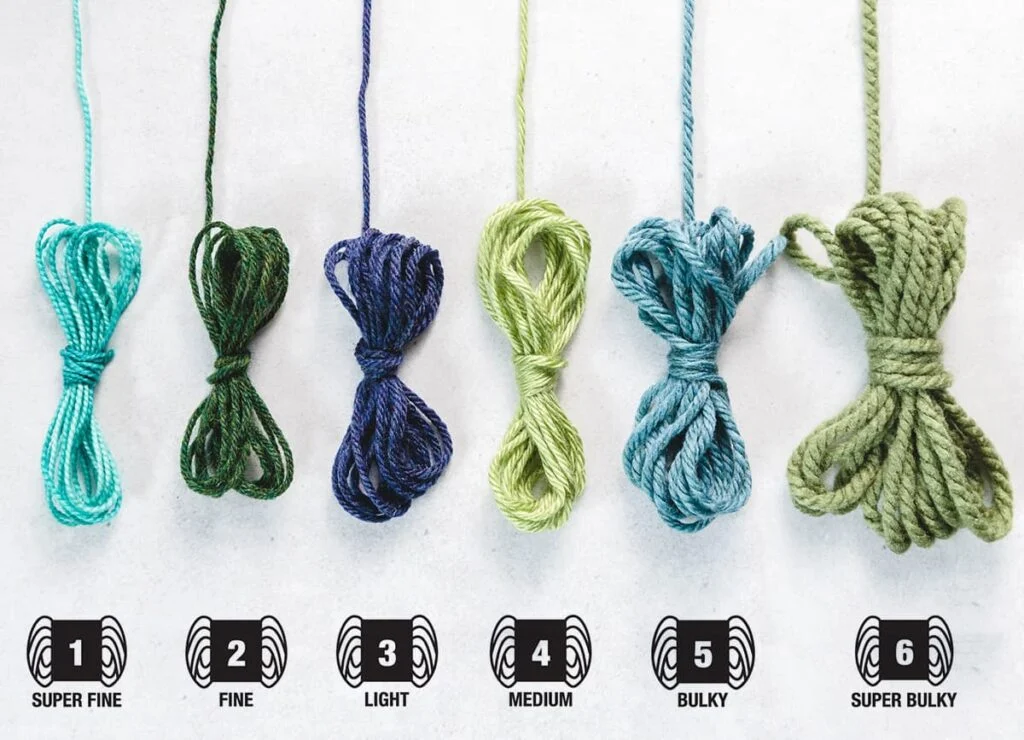
What Should You Know About Yarn Prices in Pakistan?
Let’s talk money. Yarn prices in Pakistan fluctuate based on multiple factors, and understanding these helps you negotiate better and plan your budget accurately.
Current Price Ranges (2025 Market Data)
Here are approximate yarn rates per kilogram:
Cotton Yarn:
- 20s count: PKR 400-480 ($1.40-$1.70 USD)
- 30s count: PKR 480-580 ($1.70-$2.10 USD)
- 40s count: PKR 580-680 ($2.10-$2.45 USD)
Monitor the global cotton price index to time your yarn purchases strategically.
Polyester Yarn:
- Spun polyester 30s: PKR 320-380 ($1.15-$1.35 USD)
- Polyester filament: PKR 280-350 ($1.00-$1.25 USD)
Blended Yarn:
- PC 65/35 (30s): PKR 420-500 ($1.50-$1.80 USD)
Note: Prices vary based on order quantity, quality grade, and market conditions. These are indicative rates for bulk orders.
Factors Affecting Yarn Prices
Understanding what influences yarn pricing helps you time your purchases and negotiate effectively.
Raw material costs: Cotton prices fluctuate with global commodity markets. When international cotton prices spike, Pakistani yarn prices follow within weeks.
Energy costs: Pakistan’s textile industry is energy-intensive. Changes in electricity and gas tariffs directly impact yarn manufacturing costs.
Exchange rates: Since many buyers pay in USD, EUR, or GBP, PKR fluctuations affect final pricing for international buyers.
Order volume: Larger orders naturally get better per-unit pricing. The difference between ordering 5 tons versus 20 tons can be 8-12% per kilogram.
Quality specifications: Higher count yarns, combed varieties, or specialty treatments cost more but deliver better end-product quality.
Seasonal demand: Peak production seasons (typically October to March) may offer slightly better rates due to capacity availability.
Getting the Best Yarn Prices
Here are practical tips for finding affordable yarn in Pakistan:
- Build relationships with multiple suppliers: Don’t rely on just one source. Having 3-4 reliable suppliers gives you pricing leverage and supply security.
- Place consolidated orders: Instead of ordering different yarn types separately, consolidate them with one supplier for volume discounts.
- Time your purchases: Monitor cotton commodity prices. When cotton prices dip, lock in yarn contracts for several months ahead.
- Negotiate payment terms: Cash-in-advance typically gets 5-7% better pricing than credit terms. Balance your cash flow needs with potential savings.
- Request detailed quotations: Ask for breakdowns including raw material costs, manufacturing charges, and margins. This transparency helps with negotiations.
Stay updated with our market watch section for current yarn price trends.
A Step-by-Step Guide to Buying Yarn in Pakistan
Let’s walk through the actual process of sourcing yarn from Pakistan. This is the roadmap that works for both first-time buyers and experienced importers.
Step 1: Define Your Requirements Clearly
Vague specifications lead to misunderstandings and disappointment. Be specific about:
- Yarn type and composition (e.g., 100% combed cotton vs. carded cotton)
- Count (e.g., 30s single or 40s/2 ply)
- Twist (S-twist or Z-twist, TPI specifications)
- Quantity (minimum and maximum order volumes)
- Quality parameters (strength, evenness, imperfections tolerance)
- Packing requirements (cone weight, carton specifications)
- Delivery timeline (realistic lead times are 4-8 weeks for most orders.)
The more detailed your specifications, the more accurate your quotations will be.
Step 2: Research and Shortlist Suppliers
Finding the right yarn suppliers in Pakistan requires due diligence.
Where to find suppliers:
- Trade platforms like Pakistan Textile Exporters Association
- Online B2B marketplaces (Alibaba, IndiaMART, TradeKey)
- Textile exhibitions and trade shows
- Sourcing agents and buying houses
- Direct manufacturer websites
What to look for:
- Years in business (prefer 10+ years of experience)
- Export credentials and client references
- Quality certifications (ISO, OEKO-TEX, BCI, etc.) click here
- Production capacity matching your needs
- Responsiveness and communication quality
Create a shortlist of 5-7 potential suppliers before moving forward. Beyond yarn, consider fabric sourcing from the same supplier for volume advantages.
Step 3: Request Samples and Specifications
Never place bulk orders without testing samples first. This step is non-negotiable.
Request:
- Physical yarn samples of your exact specifications
- Technical data sheets (TDS) with test results
- Mill test certificates
- Available colors and dye options (if buying dyed yarn)
Test the samples for:
- Strength and elongation
- Evenness and uniformity
- Hairiness and imperfections
- Appearance and luster
- Performance in your specific application
Most reputable Pakistani yarn manufacturers provide samples free or at nominal cost for serious buyers.
Step 4: Evaluate Quality and Pricing
Now compare your shortlisted suppliers across multiple criteria.
Quality comparison:
- Do samples meet your specifications?
- Are test certificates from accredited labs?
- What’s the consistency across multiple sample batches?
- How does it perform in your production process?
Pricing evaluation:
- Compare like-with-like (same specs, quantities, terms)
- Factor in shipping costs to your location
- Consider payment terms and their impact
- Calculate total landed cost, not just FOB price
The cheapest option isn’t always the best. Balance quality, reliability, and price.
Step 5: Negotiate Terms and Contracts
Once you’ve identified your preferred supplier, it’s time to negotiate.
Key negotiation points:
- Price per kilogram (aim for volume commitments to get better rates)
- Payment terms (LC, advance, or credit arrangements)
- Quality guarantees and claim procedures
- Delivery schedule and penalties for delays
- Minimum order quantities (MOQ)
- Price validity period (lock prices for 3-6 months if possible)
Get everything in writing. A proper proforma invoice or contract prevents misunderstandings later.
Step 6: Place Trial Order
Your first order should be a trial, even if you eventually need larger volumes.
Trial order benefits:
- Tests the supplier’s reliability
- Validates quality consistency
- Identifies any communication gaps
- Provides experience with logistics and documentation
- Reduces risk before scaling up
A trial order of 2-5 tons is typically sufficient to evaluate a supplier thoroughly.
Step 7: Monitor Production and Quality
Stay involved during production, especially for first orders.
Request:
- Production schedule and updates
- In-process quality reports
- Pre-shipment inspection option
- Photos of packing and loading
Many buyers work with third-party inspection companies in Pakistan to verify quality before shipment leaves the factory.
Step 8: Handle Logistics and Documentation
Shipping options:
- Sea freight (most economical for bulk orders, 3-6 weeks transit)
- Air freight (faster but expensive, for urgent or small orders)
- Land transport (for regional buyers in neighboring countries)
Required documents:
- Commercial invoice
- Packing list
- Bill of lading or airway bill
- Certificate of origin
- Test certificates and quality reports
- Any specific certifications required by your country
Work with your supplier or freight forwarder to ensure smooth documentation and customs clearance.
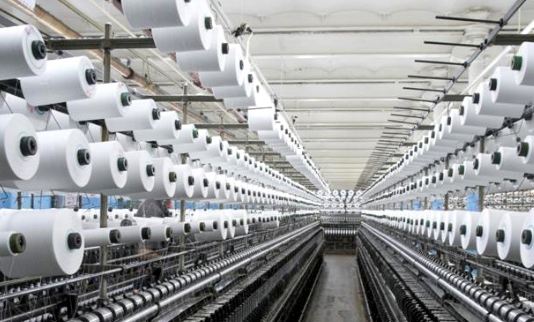
How to Identify Quality Yarn from Pakistan
Not all yarn manufacturers in Pakistan deliver the same quality. Here’s how to separate excellent suppliers from mediocre ones.
Physical Quality Indicators
When inspecting yarn, look for these signs of quality:
Evenness: Roll the yarn between your fingers. Quality yarn feels consistent without thick and thin spots. Uneven yarn causes problems in weaving or knitting.
Strength: Gently pull a strand. It should have good tensile strength without breaking easily. Weak yarn leads to breakages during production.
Hairiness: Check for excessive fuzzy fibers sticking out. Some hairiness is normal, but excessive fuzz indicates lower quality or processing issues.
Colour consistency: For dyed yarn, colour should be uniform across cones and batches. Variations create visible defects in final products.
Cleanliness: Quality yarn has minimal contamination, with no seed particles, trash, or foreign fibers mixed in.
Technical Quality Parameters
Request lab test reports covering:
Count (Ne or Tex): Should match your ordered specifications within acceptable tolerances (typically ±2.5%)
Twist (TPI): Twist per inch affects yarn strength and appearance. Verify it meets your requirements.
Strength (CSP or RKM): Breaking strength indicates yarn quality. Higher CSP values mean stronger yarn.
Evenness (U% and CV%): Measures yarn uniformity. Lower percentages indicate better quality.
Imperfections: Count of thin places, thick places, and neps per kilometre. Lower numbers mean higher quality.
Certifications That Matter
Reputable Pakistani yarn suppliers invest in quality certifications:
ISO 9001: Quality management system certification shows consistent processes
OEKO-TEX Standard 100: Ensures yarn is free from harmful substances (important for apparel)
Better Cotton Initiative (BCI): For sustainably sourced cotton yarn
Global Organic Textile Standard (GOTS): For organic cotton yarn
GRS (Global Recycled Standard): For recycled content verification
While certifications aren’t everything, they indicate a supplier’s commitment to quality and compliance.
5 Key Trends in Sourcing Yarn from Pakistan
The Pakistani yarn market is evolving rapidly. Understanding current trends helps you make smarter sourcing decisions.
Trend 1: Sustainability and Eco-Friendly Yarns
Environmental consciousness is reshaping the textile industry, and Pakistani manufacturers are responding.
What’s happening:
- Growing production of organic cotton yarn
- Increased availability of recycled polyester yarn
- BCI (Better Cotton Initiative) adoption expanding
- Natural dyeing and low-impact processing options
- Water and energy conservation in manufacturing
Why it matters: Consumers and brands increasingly demand sustainable products. Sourcing eco-friendly yarn from Pakistan gives you marketing advantages and meets regulatory requirements in many markets.
Action point: Ask suppliers about their sustainability certifications and practices. Premium prices for sustainable yarn (10-20% higher) are becoming acceptable.
Our commitment to sustainability initiatives ensures eco-friendly sourcing options.
Trend 2: Digital Integration and Transparency
Technology is making yarn sourcing more transparent and efficient.
Emerging practices:
- Digital yarn marketplaces connecting buyers directly with mills
- Real-time price tracking and market intelligence platforms
- Blockchain for supply chain transparency
- Virtual mill tours and remote quality inspections
- Digital documentation and LC processing
Why it matters: These tools reduce sourcing time, improve price discovery, and increase trust between buyers and suppliers.
Action point: Explore digital platforms like Sutarmandi or Yarn Online for competitive pricing and transparent transactions.
Trend 3: Customization and Value-Added Products
Generic commodity yarn faces price pressure. Smart Pakistani suppliers are moving up the value chain.
Available customizations:
- Custom-dyed yarns to exact color specifications
- Proprietary blends for specific applications
- Treated yarns (anti-bacterial, moisture-wicking, flame-retardant)
- Specialty counts and twists for niche markets
- Small-batch production for fashion and premium segments
Why it matters: Customized yarn helps your products stand out and commands better margins.
Action point: Discuss your specific needs with suppliers. Many can create custom solutions if you commit to reasonable volumes.
Trend 4: Automation and Quality Consistency
Modern Pakistani yarn mills are investing heavily in automation.
Technology adoption:
- Automated spinning systems for better consistency
- Online quality monitoring during production
- Robotic packing and handling
- Integrated management systems
- Laboratory automation for faster testing
Why it matters: Automation means more consistent quality, faster production, and fewer human errors.
Action point: Prefer suppliers investing in modern machinery. Their quality consistency will save you headaches in production.
Trend 5: Regional Specialization
Different regions of Pakistan specialize in different yarn types.
Regional strengths:
- Faisalabad area: Cotton spinning capital, best for cotton yarn
- Karachi region: Polyester and blended yarns, export-oriented
- Lahore and surrounding areas: Premium combed yarn and specialty products
- Interior Sindh: Mid-range cotton yarn, competitive pricing
Why it matters: Sourcing from specialized regions often gives better quality and pricing.
Action point: Match your yarn needs with regional strengths for optimal results.
Top 7 Tips for Finding Affordable Yarn in Pakistan
Let’s get practical about saving money without sacrificing quality. These tips come from buyers who’ve successfully sourced yarn from Pakistan for years.
Tip 1: Work With Sourcing Agents or Buy Houses
Trying to navigate Pakistan’s textile ecosystem alone can be overwhelming. Sourcing agents earn their fees.
Benefits:
- Local market knowledge and supplier networks
- Quality control and inspection services
- Negotiation leverage from bulk buying
- Help with documentation and logistics
- Problem resolution if issues arise
Vigour Impex, for example, acts as a sourcing partner with over three decades of textile experience in Pakistan. They have established supplier relationships that individual buyers can’t easily replicate.
Cost: Typically 2-5% commission, but often pays for itself through better pricing and reduced risk.
Tip 2: Consolidate Orders Across Product Lines
Don’t just buy yarn; also consider sourcing fabric, home textiles, or garments from the same supplier or agent. Consolidating yarn with home textiles orders improves your overall pricing.
Advantages:
- Volume discounts across product categories
- Simplified logistics and documentation
- Stronger relationships with suppliers
- Reduced per-unit overhead costs
Many Pakistani textile companies offer integrated services from yarn to finished products.
Tip 3: Leverage Off-Season Timing
The textile industry has busy and slow seasons. Use this to your advantage.
Slow periods (typically April-August):
- More supplier attention to your orders
- Better negotiation position
- Potentially lower prices due to capacity availability
- Faster production and delivery
Busy seasons (typically October-March):
- Higher demand pushes prices up
- Longer lead times
- More competition for production slots
Strategy: Place advance orders during slow periods for delivery in busy seasons.
Tip 4: Build Long-Term Relationships
One-time transactions get one-time pricing. Loyal customers get better deals.
How to build relationships:
- Communicate clearly and professionally
- Pay on time (builds trust)
- Give feedback (helps suppliers improve)
- Commit to repeat orders
- Visit suppliers in person if possible
Benefits:
- Priority during capacity crunches
- Better pricing as relationship deepens
- First access to new products or technologies
- More flexible payment terms
- Supplier investment in meeting your specific needs
Tip 5: Understand and Negotiate Incoterms
Incoterms (International Commercial Terms) significantly impact your total costs.
Common options:
- FOB (Free on Board): You handle shipping from Pakistan port gives you control but requires logistics expertise
- CNF/CFR (Cost and Freight): Supplier arranges shipping but you handle insurance
- CIF (Cost, Insurance, and Freight): Supplier handles everything to your port convenient but potentially more expensive port.
- DDP (Delivered Duty Paid): Supplier delivers to your door easiest but most expensive
Money-saving tip: If you have logistics capabilities, negotiate FOB terms and arrange your own shipping. This often saves 8-15% compared to CIF pricing.
Tip 6: Monitor Cotton Commodity Prices
Since cotton drives much of Pakistan’s yarn production, cotton commodity prices impact yarn costs significantly.
How to track:
- New York Cotton Exchange (ICE Futures)
- Karachi Cotton Association (KCA) rates
- Pakistan Cotton Ginners Association reports
- International Cotton Advisory Committee data
Strategy: When cotton prices dip, lock in yarn contracts for 3-6 months ahead. When prices are rising, buy just-in-time to avoid overpaying.
Many yarn suppliers adjust prices monthly based on cotton market movements.
Tip 7: Request Open Specifications on Non-Critical Parameters
Being flexible on certain specifications can unlock significant savings.
Where flexibility helps:
- Cone weight: Standard sizes cost less than custom weights
- Packing format: Standard cartons vs. custom packaging
- Color: Natural or standard colors vs. custom color matching
- Delivery timing: Flexible delivery dates allow suppliers to optimize production
Where NOT to compromise:
- Yarn count and composition (core functionality)
- Strength and quality parameters (affects your production)
- Cleanliness and contamination levels (impacts final product)
Unlocking the Secrets of Yarn Sourcing in Pakistan
Let me share some insider knowledge that most yarn sourcing guides don’t tell you.
The Power of Industry Connections
Pakistan’s textile industry operates heavily on relationships and trust. The best deals often don’t reach public marketplaces.
How to tap into insider networks:
- Attend Pakistan textile trade shows (Texpo, Pakistan Mega Textile Show)
- Join industry associations as an international member
- Connect with textile engineers and technical consultants
- Build relationships with freight forwarders specializing in textiles
- Work with established buying houses with decade-long connections
These connections can give you access to premium suppliers, early information about price movements, and solutions during supply chain disruptions.
Quality Control: Beyond Lab Reports
Smart buyers don’t just rely on supplier-provided test certificates.
Additional quality assurance steps:
- Third-party testing: Send samples to independent labs in your country
- Pre-shipment inspection: Hire inspection companies (SGS, Bureau Veritas, Intertek) to verify quality before shipment
- Production monitoring: Request photos or videos during production
- Surprise audits: If volumes justify it, conduct unannounced mill visits
- First-lot intensive checking: Inspect 100% of cones in your first few orders to catch quality issues early
Cost of quality problems: A 2% difference in price means nothing if quality issues cause 10% waste in your production.
Currency and Payment Strategies
Exchange rate fluctuations between PKR and your currency affect costs significantly.
Smart payment approaches:
- Forward contracts: Lock in exchange rates for future payments
- Multi-currency accounts: Pay in PKR if your bank offers competitive rates
- Payment timing: Monitor currency trends and time payments when PKR is strong
- Price clauses: Negotiate currency adjustment clauses for long-term contracts
Risk management: Major currency swings (5-10% within months) can eliminate your margin advantages.
The Hidden Cost of Communication Gaps
Cultural and communication differences cause more sourcing problems than quality or pricing issues.
Common pitfalls:
- Assuming “yes” always means agreement (sometimes it’s just politeness)
- Different interpretations of “urgent” or “soon”
- Specifications lost in translation
- Expectations about responsiveness and communication frequency
Solutions:
- Over-communicate specifications in writing
- Use visual references (photos, samples) whenever possible
- Confirm understanding by asking suppliers to repeat back key points
- Build buffer time into schedules for clarifications
- Work with suppliers who have dedicated export teams with strong English skills
Common Mistakes to Avoid When Sourcing Yarn from Pakistan
Learning from others’ mistakes is cheaper than making them yourself. Here are the biggest errors I’ve seen buyers make.
Mistake 1: Choosing Based on Price Alone
The cheapest quote is often expensive in the long run.
Why: Low prices may indicate:
- Lower quality raw materials
- Cutting corners in processing
- Inexperienced manufacturers
- Unsustainable business practices
- Hidden costs that emerge later
Better approach: Evaluate total value quality, reliability, communication, and service alongside price.
Mistake 2: Skipping Sample Testing
Some buyers place bulk orders based on specifications alone, without physical samples.
Consequences:
- Quality surprises when bulk order arrives
- Yarn doesn’t perform as expected in your production
- Different interpretations of specifications
- Expensive returns or waste
Better approach: Always test samples in your actual production process before committing to bulk orders.
Mistake 3: Unrealistic Lead Times
Pushing suppliers for impossibly fast delivery usually backfires.
Typical realistic timelines:
- Sample development: 5-10 days
- Production for 5-10 ton order: 2-4 weeks
- Shipping (sea freight): 3-6 weeks depending on destination
- Total: 6-10 weeks from order to delivery
Better approach: Plan your procurement calendar with realistic lead times and buffers for delays.
Mistake 4: Ignoring Documentation Requirements
Import documentation varies by country. Missing or incorrect documents cause costly customs delays.
Common issues:
- Wrong HS codes affecting duty rates
- Missing certificates of origin
- Incomplete or inaccurate commercial invoices
- Lack of required quality certifications
Better approach: Understand your country’s import requirements before ordering. Share these clearly with your supplier.
Mistake 5: No Backup Suppliers
Relying on a single source creates vulnerability.
Risks:
- Production delays if your supplier faces capacity issues
- No leverage for price negotiations
- Supply chain disruption if relationships sour
- Dependency on one quality standard
Better approach: Develop relationships with 2-3 reliable suppliers even if you give most business to one.
Frequently Asked Questions About Sourcing Yarn from Pakistan
Q: What is the minimum order quantity (MOQ) for yarn from Pakistan? MOQs vary by supplier and yarn type. Typically, manufacturers require 2-5 tons minimum for cotton yarn and 1-3 tons for polyester yarn. Some larger mills have higher MOQs of 10+ tons, while smaller units or sourcing agents can accommodate smaller orders.
Q: How long does it take to receive yarn orders from Pakistan? Total timeline is typically 6-10 weeks: 1-2 weeks for production, 1 week for packing and documentation, and 3-6 weeks for sea freight. Air freight reduces shipping to 5-7 days but costs significantly more.
Q: Is Pakistani yarn quality comparable to other countries? Yes, quality Pakistani yarn matches international standards, especially from established manufacturers. Many global brands source yarn from Pakistan. Key is selecting certified suppliers and conducting proper quality checks.
Q: What payment terms are common when buying yarn from Pakistan? Payment terms vary: new buyers typically need 30-50% in advance with the balance against document copies or before shipment. Established buyers may get 30-60 day credit terms. Letters of Credit (LC) are common for larger orders.
Q: Can I visit yarn manufacturers in Pakistan before placing orders? Yes, most reputable manufacturers welcome buyer visits. It’s highly recommended for significant orders. Faisalabad, Karachi, and Lahore are main textile hubs. Many buyers combine multiple mill visits in one trip.
Q: How do I handle quality issues or claims? Address issues immediately with photographic evidence. Reputable suppliers usually offer replacements or credits for genuine quality problems. This is why working with established suppliers or buying houses provides better recourse.
Q: Are there export incentives or duty drawbacks when sourcing from Pakistan? Pakistan offers various export incentives to manufacturers, which can translate to competitive pricing. However, import duties depend on your country’s regulations. Check your local customs requirements and applicable duty rates.
Q: What’s the difference between working directly with mills vs. through sourcing agents? Direct mill relationships offer better pricing but require more effort, local knowledge, and quality control. Sourcing agents charge 2-5% commission but provide local expertise, quality assurance, and logistics support and handle multiple suppliers efficiently.
Q: Is organic or sustainable yarn available from Pakistan? Yes, organic cotton yarn and BCI (Better Cotton Initiative) certified yarn are increasingly available from Pakistani suppliers. Recycled polyester yarn is also emerging. Expect to pay a 10-25% premium for certified sustainable options.
Q: How can I ensure consistent quality across multiple orders? Maintain detailed specifications in writing, request batch-wise test certificates, conduct periodic third-party inspections, build strong supplier relationships with clear quality expectations, and provide feedback after each order.
Taking the Next Step in Your Yarn Sourcing Journey
You now know how to source quality yarn from Pakistan confidently. But knowledge without action doesn’t grow your business.
Here’s your immediate action plan:
This Week:
- Define your exact yarn requirements (type, count, quantity, timeline)
- Research and shortlist 5-7 potential Pakistani suppliers
- Draft your inquiry email with clear specifications
- Reach out and request quotations and samples
This Month:
- Evaluate received samples and quotations
- Conduct due diligence on shortlisted suppliers
- Negotiate terms with your top 2-3 choices
- Place a trial order with your preferred supplier
This Quarter:
- Monitor your trial order quality and logistics
- Evaluate results and optimize specifications if needed
- Build relationships with successful suppliers
- Plan larger orders or develop additional suppliers
Remember, successful yarn sourcing is about relationships, not just transactions. The time you invest in finding the right partners pays dividends for years.
Partner With Pakistan’s Leading Textile Sourcing Expert
Navigating Pakistan’s complex textile landscape alone can be overwhelming, especially if you’re new to the market or don’t have local connections. That’s where working with experienced sourcing partners makes all the difference.
Vigour Impex has been at the forefront of Pakistan’s textile industry for over three decades. We’re not just suppliers – we’re your strategic sourcing partner with deep local expertise and global reach.
Why Choose Vigour Impex for Yarn Sourcing?
Unmatched Industry Experience With 30+ years in Pakistan’s textile sector, we’ve built strong relationships with the country’s best yarn manufacturers. We know which mills excel in cotton, which specialize in polyester, and which deliver the most consistent quality.
Complete Sourcing Solutions We don’t just connect you with suppliers; we manage the entire process. From initial requirements analysis to quality inspection to logistics coordination, we handle every detail so you can focus on growing your business.
Quality You Can Trust Our quality control team conducts rigorous inspections at every stage. We work only with certified manufacturers who meet international standards, and we verify quality before anything ships to you.
Competitive Pricing Through Volume Our consolidated buying power with multiple manufacturers means we secure better pricing than individual buyers can achieve. These savings get passed to you without compromising on quality.
One-Stop Textile Solution Beyond yarn, we source fabrics, home textiles, and garments – giving you a single reliable partner for all your textile needs. This consolidation saves time, reduces complexity, and often improves overall pricing.
Transparent Communication We believe in clear, honest communication. You’ll always know exactly what’s happening with your orders, from production status to shipping updates. No surprises, no hidden issues.
Learn more about our services and how we support international buyers
Our Yarn Sourcing Services Include:
✓ Supplier identification and vetting
✓ Sample procurement and testing coordination
✓ Price negotiation and contract management
✓ Quality control and pre-shipment inspection
✓ Production monitoring and updates
✓ Export documentation and compliance
✓ Logistics coordination and shipment tracking
✓ After-sales support and claim resolution
Ready to Simplify Your Yarn Sourcing from Pakistan?
Don’t navigate the complexities alone. Let our expertise work for you.
Get Started Today:
- 📧 Email us your yarn requirements for a detailed quotation
- 📞 Schedule a consultation to discuss your specific needs
- 🏭 Arrange a virtual or in-person mill tour
- 📋 Request samples to evaluate our quality standards
- 💼 Download our comprehensive yarn catalogue.
Contact Vigour Impex | View Our Yarn Products | Learn About Our Services


